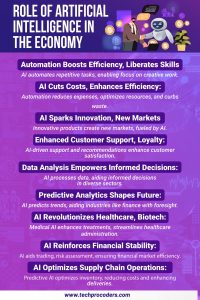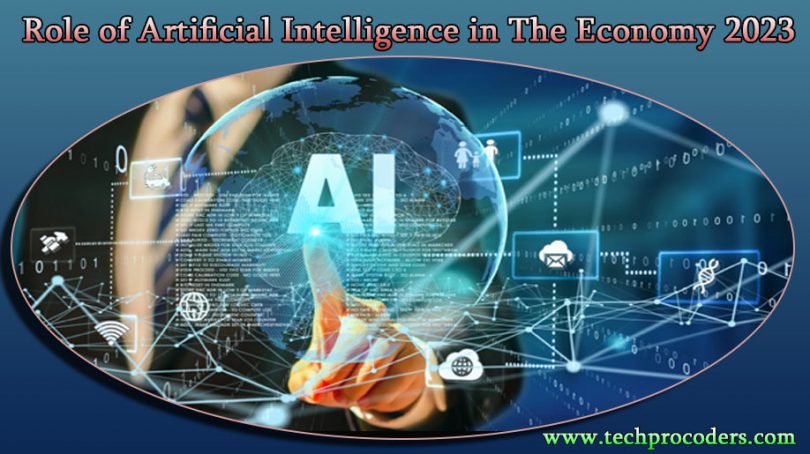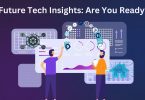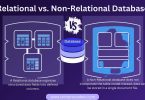Economic Growth Through Digital Transformation and AI:
The outlook for global economic growth has worsened significantly this year due to increased inflation and tighter financial conditions. Moreover, it is difficult to predict the duration of the current downturn in economic indicators such as GDP, corporate profits and employment. Despite these challenges, there is some good news that businesses can boost their productivity and resilience by making smart investments today. Many companies successfully weathered the challenges of the pandemic by embracing digital transformation; AI has a more significant impact than simply moving processes online.
Impact of AI on the Economy: Strategies for Businesses and PolicymakersP:
AI is likely to have a significant impact on the economy in 2023 and beyond, businesses and policymakers will need to adapt to this rapidly evolving technology.
Artificial Intelligence (AI) is a highly effective tool for policymaking and implementing policies, leading to increased efficiency, higher quality public services and reduced time spent on administrative tasks. The policy cycle benefits from AI’s capabilities, as it can be applied from the initial agenda-setting phase to policy formulation, decision making, implementation and evaluation. While AI excels at tasks such as data analysis and logical reasoning, it may struggle to handle human-centric concepts like equity, justice and fairness. AI’s current capacity to understand human reality, including cultural nuances and causal relationships, is limited. Biases, prejudices or past experiences can influence AI algorithms and models, leading to inaccurate results. This policy brief assesses both the potential advantages and drawbacks of incorporating AI into policymaking and explores policy options to ensure that AI remains centered on human needs.
The Pros and Cons of AI: Implications for the Future of Industries and Jobs:
AI has the potential to revolutionize various aspects of a country’s future by enabling automation through machine learning; probably could lead to increased efficiency, reduced costs and increased productivity in various industries. AI could lead to the development of new industries and job opportunities, as well as advancements in healthcare, transportation and other sectors. However, there may also be potential challenges and concerns related to the ethical use of AI, the impact on employment and the potential for bias in AI decision-making.

Role of Artificial Intelligence in The Economy:
From Legacy Systems to Digital Transformation, a Roadmap for Success Thanks to Artificial Intelligence. Digital transformation enables businesses to automate manual processes, leverage data to make informed decisions, adopt cloud technologies for scalability and cost-effectiveness, enhance customer experiences through personalized and seamless interactions, and foster a culture of innovation and experimentation. By embracing digital transformation, companies are now able to reduce production costs, improve efficiency, optimize all operations, increase customer loyalty and drive positive growth.
Exploring the Potential Benefits of AI in Healthcare and Prosthetics by 2050:
It is difficult to predict with certainty the exact impact that AI will have in 2050, but some potential benefits could include the ability to effectively treat neurological disorders such as Alzheimer’s, Parkinson’s, most birth defects, spinal cord injuries, blindness, and deafness. Additionally, by 2050, it is possible that robotic prosthetics could become more advanced than biological limbs, and could be controlled by the mind. However, it is important to note that the impact of AI will depend on various factors such as technological advancements, ethical considerations, and societal norms among others.







